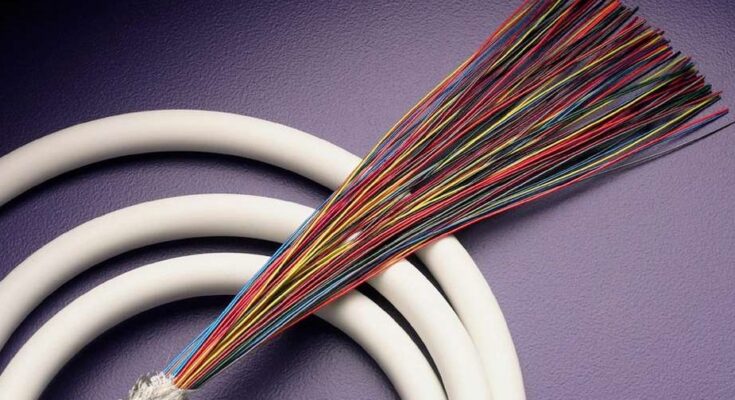Choosing the right coaxial speaker cables is one of the most critical factors in ด้วยเหตุว่าเว็บไซต์สล็อตของพวกเราพร้อมให้บริการและก็ตอบโจทย์ทุกคนได้ครบจบทุกความต้องการกันเลย ให้เล่นผ่านเว็บไซต์ตรงสล็อตไม่ผ่านเอเย่นต์อะไรก็ตามทั้งนั้น เล่นเกมได้เงินจริง สล็อตเว็บตรง ถอนเงินได้จริง ที่สำคัญเล่นสร้างรายได้ตลอด 24 ชั่วโมง ไม่มีทางหยุด creating a good home theater or sound system. If you go to any audiophile website, they will tell you that coax speaker cables are far superior to any other type of cable because they provide a purer, crisper sound and better fidelity.
Coaxial Speaker Cables
There are a few things to consider when selecting a suitable coaxial speaker cable for your home. The first is the gauge of the wire. The thicker the gauge, the better the quality of sound. The next thing to consider is the length of the cable. The longer the cable, the more expensive it will be. Finally, you must decide if you want a single or a dual conductor cable. A single-conductor cable is cheaper, but a dual-conductor cable will give you better sound quality.
Coaxial Speaker Cable Support
A coaxial speaker cable is the ideal type of wire for your home theater or audio system. Understanding the different types of coaxial cables and how they can impact the quality of your sound before making a purchase is essential.
There are two main types of coaxial cables: RG-59 and RG-6. RG-59 is the most common cable type and is often used for connecting CD players, DVD players, and other audio/video components. RG-6 is a heavier gauge cable typically used to connect amplifiers to speakers.
When selecting a coaxial speaker cable, it is essential to consider the gauge (thickness) of the wire. A thicker wire can carry more current and produce a higher-quality sound. However, thicker wires are also more expensive and may be difficult to route through your home theater system.
It is also essential to consider the length of the cable runs in your home theater system. Longer runs will require thicker wires to maintain signal integrity. If you are unsure what size wire to use, it is always best to consult a professional installer or electronics retailer.
Coaxial Speaker Cable Terminology
Within the world of speaker cables, there are a few terms that you will want to become familiar with before making your final selection. Here are a few of the essential coaxial speaker cable terms:
– AWG: American Wire Gauge is the standard used to measure the diameter of electrical wire. The lower the AWG number, the thicker the wire. For example, 12 AWG wire is thicker than 16 AWG wire. Concerning speaker cables, thicker wires can carry more power and produce better sound quality.
– Conductor: The conductor is the part of the cable that carries the electrical signal from your amplifier to your speakers. Typically, copper is used as the conductor because it is an excellent conductor of electricity.
– Dielectric: Dielectric is a non-conductive material that surrounds the conductor. It insulates the conductor and helps to protect it from interference.
– Shielding: Shielding is a layer of material that surrounds the dielectric and helps to protect it from interference. There are two types of shielding: foil and braid.
Foil shielding uses a thin layer of aluminum foil to reflect interference away from the dielectric. In contrast, braid shielding uses a woven mesh of copper or aluminum strands to absorb interference.
Choosing the Right Coaxial Speaker Cable for Your Home
There are a few things to consider when choosing a suitable coaxial speaker cable for your home. First, you’ll need to decide what gauge of wire you’ll need. The thicker the wire, the better the sound quality will be. However, thicker wire is also more expensive.
Next, you’ll need to decide how long of a cable you’ll need. The longer the cable, the more expensive it will be.
Finally, you’ll need to decide whether you want shielded or unshielded cable. Shielded cable is more expensive but protects against interference from other electronic devices.
Once you’ve decided on the type of coaxial speaker cable you need, shop around for the best price. Compare prices at different stores and online retailers. You may even find a good deal on used or refurbished cables.
The Importance of Testing and Evaluating
As the popularity of home theater systems has increased, so has the demand for high-quality coaxial speaker cables. But with so many options on the market, how do you know which one is right for your system?
Testing and evaluating different coaxial speaker cables is the best way to find the perfect match for your home theater. When testing cables, gauge, length, and impedance are a few things to keep in mind.
Gauge is the thickness of the cable and is measured in AWG (American Wire Gauge). The thicker the cable, the better it will handle high frequencies without losing sound quality.
Length is significant because it determines how much signal loss there will be between your receiver and speakers. The longer the cable, the more signal loss you can expect. Impedance is also a factor to consider when choosing a coaxial speaker cable.
The impedance of a cable should match the impedance of your speakers. If it’s too low, you may not get enough power to your speakers. If it’s too high, you could damage your receiver or amplifier.
Once you’ve considered all these factors, it’s time to start testing different cables. The best way to do this is by listening to music or watching movies with each cable to see how they perform. Pay attention to things like sound clarity and overall volume.
Types of Solid Core Wire for Coaxial Speaker Cables
There are three types of solid core wire for coaxial speaker cables: copper, aluminum, and silver. Each type has its benefits and drawbacks that should be considered when selecting a speaker cable.
Copper is the most common type of solid core wire used in coaxial speaker cables. It is an excellent conductor of electricity and heat, making it ideal for high-powered audio systems. However, copper is also a relatively soft metal, easily damaged by sharp objects or exposed to the elements.
Aluminum is another type of solid core wire that is often used in coaxial speaker cables. Like copper, aluminum is an excellent conductor of electricity and heat. However, aluminum is much more complex than copper, making it more resistant to damage. Additionally, aluminum is significantly lighter than copper, making it easier to work with during installation.
Silver is the most expensive type of solid core wire in coaxial speaker cables. Silver has the best electrical conductivity of any metal, making it ideal for high-end audio systems. However, silver is also very soft and can be easily damaged. Silver tarnishes easily when exposed to the air, which can affect the quality of your audio signal.
Author Bio
I am Zoya Arya, and I have been working as Content Writer at Rananjay Exports for past 2 years. My expertise lies in researching and writing both technical and fashion content. I have written multiple articles on Gemstone Jewelry like Citrine Jewelry and other stones over the past years and would love to explore more on the same in future. I hope my work keeps mesmerizing you and helps you in the future.




